What can we learn about masculinity and misogyny from the Netflix drama 'Adolescence'?

Written by Bold Voices
Bold Voices is an award-winning social enterprise preparing and empowering school communities to recognise and tackle gender inequality and gender-based violence through the delivery of educational talks, workshops, training and resources for young people, teachers and parents.
Originally published here: https://www.boldvoices.co.uk/blog/2025/3/20/what-can-we-learn-about-masculinity-and-misogyny-from-the-netflix-drama-adolescence
On March 13 Adolescence premiered on Netflix, a week on and the show has a 98% rating on Rotten Tomatoes and has sent waves across media, starting conversations about themes of masculinity, the ‘manosphere’, incel culture and gender-based violence more widely. It is a show that has driven home the fear of what happens when harmful attitudes and beliefs develop into extreme violence.
If you’re looking to understand some of the key terms used in the series take a read of this article first: https://www.standard.co.uk/lifestyle/andrew-tate-incel-meaning-adolescence-netflix-b1217106.html
The question of ‘why’ runs throughout the four-part series. What made this 13 year old boy brutally stab and murder his school mate, Katie. Where did his behaviour come from? Was it the ‘masculinity’ modelled by his father? A generally kind man who displays a couple of emotional and physical outbursts throughout the show (including physically intimidating and handling a child who vandalised his work van)? Was it his friends at school who ultimately provided him with the murder weapon? Was it the misogyny influencers and their ideas? Or the social media sites platforming these influencers and offering young people the impunity which allows them to say harmful and destructive things to and about each other?
Throughout the show we are trying to understand if Jamie is a good kid at heart who was ultimately misguided and has done something devastating, but out of character. Or whether he is a bad kid that has been able to manipulate and hide his darkness from his parents, and even us as viewers. But then again how bad of a kid can you really be with planet wallpaper and stickers of tiny astronauts? These minor and seemingly unremarkable, but ultimately essential, details about Jamie’s room make up the final scenes of this powerful show. They are a reminder that Jamie could be any young boy in any family. It is just how unremarkable he is as a character that makes this story so poignant.
So what themes about masculinity, and adolescence, can we draw out from the show?
Masculinity, the ‘manosphere’ and ‘incel’ communities
Jamie is a boy who we come to understand has been spending time online, getting drawn into ‘manosphere’ and ‘incel’ communities. During the second episode that takes a look at Jamie’s school, we learn about the “call to action by the manosphere”, the meaning behind ‘red pills’ and ‘blue pills’ and the 80/20 rule (that 80% of women are attracted to 20% of men).
“Red pill is like I see the truth, it’s a call to action by the manosphere. Which is where the 100 comes in, the 80/20 rule. 80% of women are attracted to 20% of men. Women, you must trick them because you will never get them in a normal way… she’s saying he’s an Incel dad” – Episode 2 | 29:50 – 31:00
When we hear from Jamie about this, he acknowledges that he knows about these ideas and that “he had a look but didn’t like it” although in talking about the 80/20 rule he says “I do think they’re right about that though”.
The writer, Jack Thorne, is very honest about the fact that through his research he realised that “there was a logic to this and how they see the world”. It is through Thorne’s vulnerability in admitting this that we are reminded of an uncomfortable truth, that the attitudes and beliefs displayed by many of these online forums and communities are attractive to boys and young men and resonate with a vulnerability they actually feel.
In the third episode Jamie is asked about what he thinks about men, about masculinity. In particular, he’s asked about his dad and grandad, what he thinks about them and what type of men they are. We get insights into the stereotypes that pervade about masculinity; his dad as a hard worker who provides for his family, who can get angry and lose his temper, who loves his wife and is good to women, but doesn’t have any female friends. None of this is positioned as ‘good’ or ‘bad’, but it holds a mirror up to the expectations we have of men and masculinity that continue to frame a ‘real man’ as someone who is physically and emotionally strong and dominant, who protects and provides for loved ones and who sees women as objects of love and affection, but not necessarily giving space for relationships to women that exist outside of caregiver, nurturer or romantic partner.
These questions are vital, and they connect back to the extreme views many boys and young men are consuming online. Rhetoric that is based on the inherent idea that a ‘real man’ doesn’t show vulnerability or weakness, protects and provides for those around him, is successful at ‘getting women’, and gains status through money, physical strength, women and material markers of success such as fast cars and displays of wealth.
Jamie couldn’t necessarily clearly articulate what makes someone ‘a man’ but he knew exactly what makes someone ‘not manly’ and his visceral rejection of those ideas were far more natural for him to display, when asked if he was friends with women he says “no” and “I’m not a twt though*”. His disdain for feminine traits and femininity is far clearer than his ‘love’ for ‘manliness’, a nuance that is powerfully captured in the show.
Femininity, objectification, power and misogyny
Not only do we get insight into how Jamie feels about himself, we are able to understand a little of how he views girls and women. The fact that he sees girls as objects and that viewing explicit images of girls that he knows (and girls and women he doesn’t know) is not something that he questions; when asked about whether he thinks the girls would be happy about him seeing explicit images of them he responds, “everyone else did”. The normalisation of girls as objects, and the non-consensual sharing and viewing of explicit images of girls, is so normal it is not worth denying or lying about.
It becomes further apparent that Jamie’s relationship to girls is far from healthy. He lies about having had sexual experiences with girls, he shrugs off the fact that he doesn’t have any friends that are girls, when asked about whether he was attracted to Katie after seeing an explicit image of her he makes an objectifying and dismissive comment about her body, saying, “no” and that “she was flat”. Jamie articulates a desire to have a girlfriend however he doesn’t seem able to articulate, or even understand, what that dynamic might look like aside from him owning or receiving sexual gratification or pleasure from a girlfriend. In the fourth episode we are presented with a stark contrast to this when Jamie’s parents are reminiscing about their first date as 13 year olds at the school disco, we hear about teenagers in the first moments of genuine connection, something that feels completely inaccessible to Jamie.
Despite answering “no” to the question of whether he feels powerful viewing explicit images of girls he knows, there are subtler insights into how Jamie feels about power and women. In one moment he stands over the psychologist and shouts in her face, a male member of staff comes to the door but she indicates that she’s okay. In response, Jamie says “what was that? hey? what the fk was that? signalling him away like a fking queen yeah?”. He is angry and riled up when faced with a woman in control.
We also get insight when Jamie reveals the impact that rejection has on him. We hear that Jamie had previously asked Katie out to the fair but that she wasn’t interested and said no to him. Although he insists multiple times that he did not “fancy” her and that he was not attracted to Katie because she’s not “his type”, Jamie shares that he assumed she would be feeling weak after explicit images of her had been shared round the school. Jamie wanted to take advantage of this vulnerability and ask her out, which meant when she rejected him, he was left feeling all the more insulted and angry.
“I just thought she might be weak after all that, cus everyone was calling her a slag or flat or whatever so I thought if she was that weak she might like me. It’s clever, don’t you think. I said I was sorry and that the guy who shared her picture was a wanker and that I’d take her to the fair if she liked… she just laughed and said – I’m not that desperate.” – Episode 3 | 42:00 – 44:00
A culture of misogyny and gender-based violence
A common reaction I’ve heard from parents and adults in response to Adolescence is fear. In particular, a fear that is centred around the online world and the harmful content that children and teenagers may be consuming without us realising. While this fear is incredibly valid and understandable, we must also be wary of not letting this fear distract us from the roots of this problem that exist far beyond the internet and the communities found there.
It is in the subtler moments in the show that we see these roots and an acknowledgement that it isn’t just the online world that led to Jamie’s actions, it is a wider ‘culture’ of gender inequality:
- Jamie does not address his mum or sister at all – exclusively reaching for the support and validation of his father.
- Jamie implies that having female friends makes someone a “twat”.
- Jamie exaggerates and lies about having had sexual experiences with girls to the psychologist and then immediately takes this back and reveals the true extent of those sexual experiences.
- Jamie feels confident enough to shout and scare the female psychologist, someone in a position of authority who is at least 15 years his senior.
- Jamie shares his awareness of his dads disappointment/shame at the fact that he wasn’t ‘sporty’.
- The school teacher only introduces the male police officer and then has to quickly introduce the female police officer when she realises her omission a few seconds later.
- The treatment of female staff members in the school where we hear male students shouting “Shut up miss!”
- The response to Ryan after he is punched by Jade (Katie’s best friend) in the playground – when another student says “You just got banged by a girl you sausage”.
- The way the female psychologist is made to feel uncomfortable by the male CCTV operator.
What happens if we watch the show without focusing on investigating the crime itself, but instead, understanding the culture all around it? The show perfectly presents the subtleness of gender stereotypes and gender attitudes that are pervasive in society. How they are shaping the way we talk to and about each other based on gender, what we expect from ourselves and each other based on gender and how we treat ourselves and others when those expectations are not fulfilled.
Adolescence confronts us with the truth that acts of gender-based violence are not committed by ‘bad apples’. Jamie is a 13 year old child who has been indoctrinated and who has had gender-based violence normalised and even glorified. There are moments that we feel deep empathy for Jamie and moments where we are scared of him, moments that ranged from the casualness with which he displayed misogynistic attitudes to the outbursts of anger and rage. But Adolescence raises the questions rather than providing the answers. The answers lie in the communities around young people coming together to prioritise education that gets to the root of the issue and addresses the gender stereotypes and attitudes that seem harmless in isolation, but together contribute to a culture that normalises gender-based violence and misogyny.
Questions to start conversations based on Adolescence:
- Why is being able to get girls or female attention so important to being seen as ‘manly’?
- Are all young boys as likely to be influenced by these messages as each other? If not – why?
- When Jamie calls himself “ugly” we get an insight into how he views himself and his self-esteem, how does this connect to his actions?
- We know many of these ideas are consumed online, where else do we learn these ideas?
- Why did the boy who received the photo of Katie spread it round? What did he gain by doing this?
- Why did Jamie think Katie was “easier to get” after the photos were leaked? How do you feel about that?
- What did Jamie feel when Katie rejected him? Why might he have felt that way?
Resources and places to learn more about these issues:
Toolkit: School of Sexuality Education – ‘A Look Into the Incel Movement: A Guide to Tackling Online Cultures of Misogyny for Schools, Colleges and Universities’
Book: Laura Bates – Men Who Hate Women
Ted Talk: Jackson Katz at TEDxFiDiWomen – ‘Violence against women—it’s a men’s issue’
Why Every Child Deserves to Hear Their Own Song

Written by Matthew Dix
Matthew Dix is a primary school teacher of 17 years. He continues to work as a teacher whilst working as a primary reading consultant across Nottinghamshire. He is the Founder of resource website Manic Street Teachers and has recently launched 'Musician of the Month' to create a culture of musical appreciation and understanding across schools, with a focus on diversity and inclusion.
Growing up, music wasn’t just background noise – it was how I made sense of the world. It was my mum playing the piano, it was watching her dance to ABBA and playing, of all things, a mandolin! It was my dad blasting heavy metal one minute and Vivaldi the next. Nothing quite says ‘peaceful Sunday morning’ like Iron Maiden shaking the windows!
As I reached adolescence, my heroes ranged from Tupac Shakur to Freddie Mercury, from John Lennon to Annie Lennox. Following their lives taught me that struggles were universal and at the end of a struggle, there can still be success. Behind every composition, every lyric, every guitar solo was a person with a story – often one of resilience against all odds.
Music took centre stage when I formed an indie band in the early 2000s. It wrote songs, often with the children’s help, for primary school subjects when I began my career as a teacher. It was a focus of mine when I created the music resources for ‘Manic Street Teachers’. Music has always been in the foreground of whatever I do.
A decade ago, I took a job in an inner-city school in Nottingham with 98% of children having English as an additional language. In fact, there were 52 different languages spoken in total. And yet, the music curriculum offered very few mirrors of themselves or windows to other worlds. A colleague and I decided to introduce a new musician every month in the hope of engaging children who seemed vacant during singing assemblies, and often unable to discuss and share their likes and dislikes in music lessons.
It wasn’t until we chose Nusrat Fateh Ali Khan as a musician one month that parents started to leave emails, children started to talk and a buzz started to make its way through school. I remember a child telling me that their parents listened to him at home. We shared his life, his trials and tribulations, his achievements and videos of his performances. Children could explain his words and what they meant. They were fascinated to learn that he had come to England in 1985 and brought Qawwali music (a form of Sufi Islamic devotional singing originating in India) with him. Children finally saw themselves and their families in our curriculum.
👉 Free Sample (Nusrat Fateh Ali Khan) – sign in required
It got us thinking. What if a girl thought that she could never be a classical musician because she looked nothing like Mozart, Beethoven or Bach? Well, we created resources all about Florence Price, whose compositions were forgotten until, just 16 years ago, when a whole collection of her work was rediscovered in a dilapidated house on the outskirts of St. Anne, Illinois.
What about a child who believes music is impossible with a disability? We shared Stevie Wonder’s story, Jacqueline du Pré’s story, and we shared how Joni Mitchell had to detune her guitar to learn to play another way after polio affected her hand. Let’s show them how these artists found ways to keep playing, no matter what. The show must go on, as Freddie Mercury said!
We live in a global world – our music curriculum should reflect that. Instead of saying, “Let’s learn African drumming,” let’s say, “Let’s learn about Babatunde Olatunji, a Nigerian drummer who learned by immersing himself in the culture and following the master drummers in his village, eventually being given a cowbell and then various Yoruba drums, took his craft to America, became an important friend to Martin Luther King Jr., and became a world-wide sensation!”
If a child thinks you can’t play music when you’re old, then share the story of The Buena Vista Social Club – how Ry Cooder, a producer from the US, had a twist of fate when musicians from Mali had their visas delayed so he ended up in Cuba, reuniting forgotten musicians like Ibrahim Ferrer, who was still shining shoes to make ends meet. The musicians, most of whom were over 70 years old, finally had a chance to tour the world with their music.
👉 Read our EYFS eBook (Ibrahim’s Song)
Context is always king, and every child loves a story. I believe the person behind the music is as important as the music itself, and becomes the bridge to another world. Teaching children to empathise helps them feel less detached from the music they are studying. Music bridges cultures, generations, and experiences in ways that words alone sometimes cannot.
That’s why I created Musician of the Month – a simple, accessible way for teachers to bring diverse musical stories into their classrooms. It’s directly linked to The Model Music Curriculum and the 9 Protected Characteristics and, as the site develops, we hope it will help schools show every child that they too can be a musician. To a child in school, the right musician, with the right song, at the right moment could well hit the right notes!
👉 Musician of the Month + Free Sample (David Bowie)
Using drama to drive empathy in schools
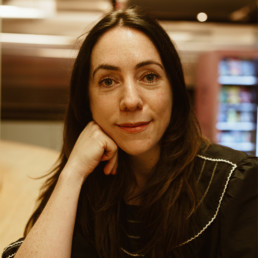
Written by Rachel Crowther
Rachel is a trained actor, coach and founder of Squash. She started working in L&D over 10 years ago and experimented with using drama to bring training to life. She created Squash to address some of the harmful workplace behaviours that were accepted as the status-quo and to offer an engaging antidote to traditional, tick-box DEI training. She’s designed and delivered impactful training experiences for global organisations, charities and young people.
Empathy is an important skill for young people (and adults) to develop. It helps them build relationships, resolve disagreements and create more inclusive environments – in the classroom and in the office. A powerful way to encourage empathy, is through drama..
I run corporate workshops for adults, using actors to spotlight behaviours and perspectives and to start meaningful conversations. Something our workshops enable, is for participants to step into someone else’s shoes.
A phrase we often hear in discussions is “We don’t know what we don’t know.” There is so much we don’t know about those around us, classmates and colleagues, the challenges and barriers they face. We often make assumptions and generalisations, to fill in the blanks, but this is where unconscious bias creeps in. Instead, learning the importance of curiosity and perspective-taking from a young age, prevents us making assumptions and helps us to create genuine, connections.
Storytelling and role-playing are simple ways for students to experience situations from multiple perspectives and are effective tools to start objective conversations on important topics like friendships, bullying, cultural differences. It builds an awareness of the unseen challenges faced by those around them, strengthening the muscle for empathy.
It’s a way for young people to experience feelings in a safe environment. For instance, acting out a scenario in which they are excluded from a playground activity. Feeling this kind of experience, in a safe, facilitated environment, is going to be far more impactful than just being told about it.
Empathy isn’t just about understanding someone else’s feelings – it’s also about how we respond. Drama helps young people to ‘rehearse’ difficult social situations. Practicing the ability to actively listen, express themselves clearly and respond with sensitivity. Improvisation is a great way to develop communications skills and the ability to think on their feet.
The benefits of developing empathy at a young age are clear. It helps young people to stand up for others and create inclusive, and welcoming school cultures and communities. Using drama is a way to not only understand empathy but to feel it and it’s that emotional connection that they’ll remember throughout their education and beyond.
True Inclusion Starts with Seeing Students for Who They Are
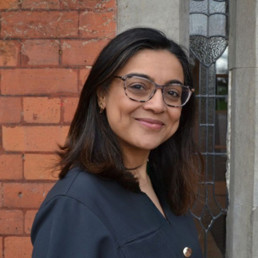
Written by Purvi Gandhi
Purvi Gandhi, MA MBA FCCT CPsychol is a psychologist, educator, and advocate for student wellbeing, leadership, and equity in education. With a career spanning clinical psychology, secondary and post-secondary education, and educational leadership, she bridges mental health and education through evidence-informed practice. She is the author of A Little Guide for Teachers: Student Mental Health, a practical resource for educators.
Imagine stepping into a new environment where your name is mispronounced or shortened to something more “convenient.” It’s a minor inconvenience, perhaps, but one that over time chips away at your sense of belonging. Now imagine this happening every day, in a place where you are supposed to grow, learn, and thrive.
For many students, particularly those from ethnic minority backgrounds, this is not hypothetical—it is their daily reality. And yet, within the walls of our classrooms, the power of a name is often underestimated. Names are not just labels; they carry history, identity, and cultural heritage. To overlook them is to overlook the student. To get them right is to affirm who they are.
Beyond Good Intentions: Why Inclusion Must Be Active
In a recent workshop with early career teachers, we explored what it really means to create inclusive classrooms—beyond policies, beyond slogans, and into the lived experiences of students. The session began with a simple but revealing exercise: storytelling.
One African tale set the tone. A great flood sweeps through the land, and every animal finds a way to escape—even the mighty crocodile. High up in the trees, the monkeys spot a fish struggling in the floodwaters. Moved by compassion, they “rescue” it, placing it safely on a branch. Of course, the fish begins to suffocate.
The lesson is clear: good intentions do not equate to good outcomes. In education, a one-size-fits-all approach can be just as ineffective as the monkeys’ well-meaning mistake. Every student has unique needs, shaped by culture, background, and identity. The question is, are we paying attention?
Consider this: A teacher, in an off-the-cuff remark during a classroom discussion on relationships, casually states that arranged marriages are “backward” or “unfair.” It’s not intended to harm, just a spontaneous reaction based on personal beliefs. But what if a student from a culture where arranged marriages are the norm is sitting there, quietly absorbing that statement?
Perhaps this student has spent years trying to navigate the space between two worlds—balancing the values of their family with the expectations of the society they are growing up in. Now, in a single moment, they are made to feel that their culture is lesser. They may go home carrying this conflict, questioning their parents, their upbringing, and where they truly belong. Suddenly, they feel like an outsider in both places—neither fully at home at school nor at home with their family.
This is the impact of uninformed assumptions. Educators do not just teach subjects; they shape perspectives. A thoughtless comment can widen the gap between a young person and their identity, making them feel alienated rather than empowered.
To be truly inclusive, we must move beyond our own perceptions and seek to understand the lived experiences of others. We must create spaces where students don’t feel forced to choose between their heritage and their education, but rather see their identities reflected and respected within the school environment.
Because, just like the fish in the flood, what a student truly needs may not be what we assume is best for them. Listening, learning, and adapting is the key to meaningful inclusion.
Rethinking What It Means to ‘See’ Our Students
An alternative version of the tale drove the point home. In this retelling, the animals hold a competition to see who can see the farthest. The eagle soars and surveys the horizon, the giraffe gazes across the savanna, and the monkey takes in the view from the treetops. When it’s the fish’s turn, it can only see the immediate waters around it. The other animals laugh—until the fish explains that while they focus on the distance, it detects subtle currents, hidden dangers, and movements they cannot perceive.
Here lies a second lesson: students should not be judged against a singular definition of success. The education system, often fixated on rigid measures of ability, risks missing the unique strengths that lie beneath the surface. A student who struggles with traditional assessments may have an extraordinary ability to lead, innovate, or empathize—if only we are willing to recognize it.
The Power of a Name
Of all the discussions that day, one stood out: the impact of names. Inspired by Bennie Kara’s work on diversity in education, we asked teachers to explore their own names—their meanings, origins, and the personal stories behind them. What followed was a conversation about identity, belonging, and the small but significant ways that schools can either affirm or erode a student’s sense of self.
One student shared how her intended name was “Yah Yah,” meaning “gift from God,” but her parents, wanting to make life easier in an English-speaking country, renamed her Ysabella. She was seated alongside another student, Anjali, whose name means “gift to God.” Here were two students, from different cultures, bound by the same idea: they were gifts.
Imagine the impact of recognising that connection—not as a coincidence, but as an intentional act of inclusion. When we take the time to pronounce a name correctly, to understand its meaning, or even to ask about it, we are sending a powerful message: You belong here.
Moving From Awareness to Action
It is easy to talk about inclusion in broad terms. It is harder—but far more necessary—to embed it into daily teaching practice. The workshop concluded with three core reflections for teachers:
- Cultural Competence: How much do I really know about my students’ backgrounds? Where are the gaps? What steps can I take to learn more?
- Equity Over Equality: Do I recognize the unique needs of my students? How can I tailor my support to meet them where they are?
- Celebrating Identity: What cultural capital do my students bring into the classroom? How can I acknowledge and honour it?
Education is not just about imparting knowledge; it is about shaping identities. A student who feels unseen will struggle to engage. A student who feels valued will thrive.
The work of inclusion is not grandiose. It does not require a total overhaul of curriculum or sweeping policy changes. It starts with the smallest of acts: a correctly pronounced name, a thoughtful seating plan, a recognition that success looks different for everyone.
And perhaps, that is the greatest takeaway of all—belonging is built in the details.
References:
Fernando-Smith,L and Aow, A, (2024), ‘Letting go of imposter syndrome: writing herstory.’ In Disruptive Women – A Guide for Equitable Action in Education, Corwin
Kara, B., 2020. A little guide for teachers: Diversity in schools, Corwin
Pierson, R., 2013. Every kid needs a champion. TED Talks Education.
To Belong Is Not Enough: Why We Must Move Towards Mattering
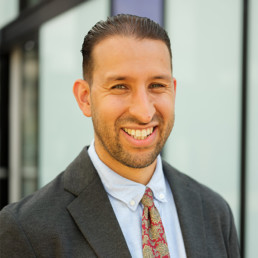
Written by Mohamed Abdallah
With almost two decades of experience, Mohamed started his journey in youth work and pupil referral units before spearheading groundbreaking inclusive practices and systems as a leader in an 'Outstanding' all-through mainstream school. Driven by a relentless commitment to positive change, Mohamed now dedicates his efforts to collaborating with school leaders across the nation as the Head of the Inclusive Leadership Course at The Difference.
“No one would care if I weren’t here.”
I can remember the words hitting me hard. As Designated Safeguarding Lead there were immediate red flags, but on a human level it broke my heart.
100% attendance, great progress, and never in trouble. On paper he belonged – but in reality he thought nobody cared.
Across the country, I hear the language of belonging increasingly referenced in discussions about student engagement, wellbeing, and success. And I welcome it. It’s a refreshing shift in our narrative about the student experience.
Still, something didn’t feel right. Then, it clicked.
It is not enough to simply belong; you should also matter.
My experience has shown me that a student can belong to a school community without ever feeling that their presence or contributions truly matter. A friend recently shared a US study with me that revealed a surprising finding: a sense of ‘belonging’ to a school community did not significantly affect academic performance. But instead there were other factors that determined success, such as participation and self regulated learning.
Think about it this way: You belong to a gym, but do the regulars know your name? You belong to a workplace, but do your ideas shape the way things are done? You belong to a school, but when you are absent, is there a noticeable void?
Mattering is more than belonging to a place or a community; it is about your significance.
One of the most prominent academic advocates for mattering is the US community psychologist Isaac Prilleltensky. He argues that developing a strong sense of mattering depends on two things: feeling you are valued, and feeling that you add value – whether that be within your workplace, your community, your family, or your friendship group. In the UK, my good friend Luke Billingham has been one of the most influential thinkers and writers on young people and mattering.
The Three Components of Mattering in Schools
After multiple voice notes back and forth, Luke and I sat down to discuss this matter (see what I did there!), and we asked:
If a student stopped coming to school tomorrow, would they feel like their absence was noticed?
Does every student have positive and affirming relationships with peers and at least one adult?
Are students actively shaping the school environment, or are they simply complying with expectations?
These questions helped us think more deeply about mattering. Of course, students should belong. But would we be satisfied as school leaders with 100% attendance, high attainment, and zero suspensions, yet students still told us, “No one would care if I weren’t here”?
They should feel they matter.
Reflecting on our experiences in different schools, Luke and I identified some key factors which we think enable students to develop mattering; Voice, Relationships, and Participation.
- Voice: Too often, schools claim to prioritise student voice while keeping real decision-making at the leadership level. But voice is not just about being heard. Schools must embed student experience and perspectives into decision-making, not just through surveys, but by creating opportunities for meaningful dialogue and change. Even when student perspectives challenge us, they offer uncomfortable truths we must engage with. When students see their input shape school culture, they matter.
- Relationships: A student might belong to a school, but do they have relationships that affirm their worth? Schools could cultivate opportunities for positive peer relationships to create strong social bonds, and to ensure every student has at least one trusted adult. Relationships built on trust and recognition, and environments where students feel valued and connected.
- Participation: Mattering isn’t just about feeling noticed, it’s about feeling needed. Students need opportunities to contribute meaningfully to their school communities. This goes beyond enrichment clubs; it means ensuring that students are actively shaping their environments. Whether through student-led campaigns, or engaging with the local community, authentic participation allows students to see their impact.
Why Mattering Matters for Inclusion
I worry that belonging is being used as a catch-all solution for inclusion, or dare I say it, a form of soft inclusion. For many students from marginalised backgrounds, belonging can feel conditional. They may be required to turn up, but do they feel like their presence and identity are essential? Do they see themselves reflected in the curriculum? Are their voices shaping school systems? Are their experiences acknowledged and valued?
Mattering addresses these questions by ensuring that students are not just included, but recognised as integral members of their schools. For students from underrepresented backgrounds, the feeling of mattering can be a protective factor against marginalisation and disengagement.
If we stop at belonging, we risk creating schools where students exist but don’t thrive, they comply but are disengaged, are included but unseen. The real challenge for schools isn’t just inclusion. It’s significance. Instead of asking, ‘Do our students belong?’ ask, ‘Do they know they matter?’
World Book Day 2025
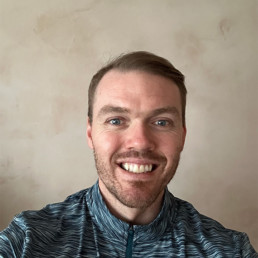
Written by Robert Davies
Rob Davies is Associate Assistant Headteacher at Calderstones School in Liverpool. This role involves leading on anti-racism in education, sharing practical strategies, reflections, and initiatives to create a more inclusive, representative, and equitable school. He shares insights on decolonising the curriculum, diversifying reading materials, and fostering anti-racist practices in schools.
Another year, another World Book Day—same costumes, same characters. Harry and Hermione? Check. Little Red Riding Hood? Of course. The Gruffalo? Naturally. And let’s not forget Mrs. Trunchbull, stomping through the halls. Sound familiar? Thought so.
But here’s the thing—World Book Day can be so much more. It’s time to move beyond the usual suspects and reimagine it through a truly diverse lens. Let’s make it an event where every student sees themselves in the stories we celebrate.
Every year, World Book Day celebrates the magic of stories. But whose stories are we telling? Who do they inspire? When books and characters overwhelmingly reflect white, middle-class experiences, whose voices are missing? Are we selecting a diverse range of books that offer all children equitable opportunities to see themselves?
If not, isn’t it just Book Day?
At its core, World Book Day aims to “promote reading for pleasure, offering every child and young person the opportunity to have a book of their own.” But if we fail to approach it through an anti-racist lens, are we truly serving all students?
The Representation Gap in Children’s Books
In the UK, 33.5% of school-aged children come from ethnic minority backgrounds. Yet, between 2017 and 2019, only 7% of children’s books featured characters from these cultures—and just 5% had a Black, Asian, or Minority Ethnic main character.
Research shows that when children see themselves in books, it shapes their sense of identity and possibility.
Despite limited representation, excellent books exist that help students feel seen, foster belonging, and cultivate a love of reading. But do schools actively seek them out?
The issue goes beyond just introducing diverse books. What if teachers haven’t read them, or don’t understand their significance?
Whose culture has capital?
With a predominantly white teaching workforce (Runnymede Trust, 2020), how often is World Book Day shaped through an anti-racist lens? One of the biggest motivators for reading is emotion—how books make us feel (Dungworth et al., 2004). Naturally, educators promote books that resonated with them in childhood, shaped by their own experiences.
If most books being championed reflect the same narrow cultural perspectives, what message does that send? Who do these books inspire—and who gets left out?
Research further supports this. More children from ethnic minority backgrounds than white backgrounds say they don’t see themselves in what they read (40% vs. 30.5%), with Black students feeling this most acutely.
Making It a World Book Day
If World Book Day is to truly reflect all students, schools must take active steps to make it more inclusive. That’s exactly what we did at Calderstones School this year.
As one of Liverpool’s largest secondary comprehensive schools, diversity is our strength. But we recognised that World Book Day needed to reflect that diversity, ensuring all students felt represented and engaged.
So, we embraced the ‘world’ in World Book Day. We focused on books and authors from a variety of cultures and languages, fostering conversations about students’ mother tongues and cultural backgrounds.
We collaborated with Greenbank Primary School and Leeds Beckett University to involve primary school students and Global Ambassadors. Together, they read books from their home countries in their native languages—including Arabic, Basque, Farsi, French, Greek, Mandarin, Polish, Russian, Urdu, and more.
By showcasing this linguistic and cultural diversity, we highlighted the vital importance of representation in education. The readings were recorded, edited, and shared on the school’s social media. The response? Overwhelmingly positive. For many in our community, this was the first time their language and heritage were visibly celebrated in school.
How to Rethink World Book Day in Your School
If we are serious about delivering a truly inclusive World Book Day, here’s lets start with the following: 1. Move Beyond the Same Old Costumes
Rather than dressing up as characters from GCSE texts, consider why these books dominate the curriculum. Less than 1% of GCSE students study a book by a writer of colour—so why reproduce that marginalisation on World Book Day?
- Conduct a Student Voice
Ask students:
- What books would you love to explore?
- Do you see your culture and heritage reflected in the school library?
- What stories are missing from the shelves?
- Use these insights to shape book selections and discussions.
- Explore Translated Literature
Many beloved English books originated in other languages—Pinocchio was originally Italian. What other global stories could students discover? World Book Day can be an opportunity to highlight the rich traditions of storytelling from around the world.
Final Thought: A Call to Action
By embracing the ‘world’ in World Book Day, we made it more meaningful for our students. This is a step in the right direction—but it can’t stop here. Schools must challenge traditional reading lists, elevate diverse voices, and ensure that every child sees themselves in the stories they read.
We can’t diversify the teaching workforce overnight, but we can broaden our thinking. We must ensure that we view events like World Book Day through an anti-racist lens.
Because if World Book Day doesn’t include all stories, is it really World Book Day at all?
I Am Not Afraid
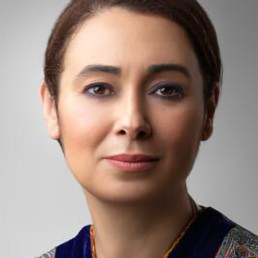
Written by Rachida Dahman
Rachida Dahman is an international educator, a language and literature teacher, and an educational innovator. She started her career in Germany as a teacher trainer advocating the importance of relationships above academics. She then moved to Luxembourg where she teaches German language and literature classes to middle and high school students. She is an award-winning poet, co-author of the best-selling book, ATLAS DER ENTSCHEIDER Entscheiden wie die Profis- Dynamik, Komplexität und Stress meistern.
School hallways are noisy. So much simmers in those corridors during breaks, and even more seems to ferment in teachers’ lounges, in the spaces of our schools as a whole. One might call it a festival of unresolved relationships, one that struggles to keep pace with the relentless pressure of coexistence, confrontation, and interdependence. By the end of a school day, we often stand slightly hunched, worn out, with restless legs that refuse to find stillness.
Amid this disorder, schools often become arenas of fear, environments where anxieties are not merely tolerated but systematically nurtured. These fears dance unseen and unchecked while the guardians of order, the teachers and educational institutions stand by as mere spectators. But what if this breeding ground of fear is not simply the result of carelessness or overwhelm, but rather the consequence of constant monitoring, control, and evaluation?
In my own school days, things were not so different. Students were expected to know little, challenge nothing, provoke no one, and certainly not disrupt. Teachers, on the other hand, constantly provoked, carried their small scandals into the school and sometimes even into the classroom. They unsettled us, and when we went home after school, we had little to report. Math, German, English, sports—subjects isolated from one another. Even the teachers lacked unity; how could the subjects possibly converse?
I remember a history teacher who filled gaps in knowledge with half-truths about controversial topics, as though he were a chronicler from another era. His stories brought the past to life, yet within the fog of his legends, the facts remained hidden. In math class, so-called wisdom from “great thinkers” was often reduced to hollow phrases—”Einstein probably said something like this.” These words sounded clever but were no more than glittering packages. In physics, correlation was sold as causation, “The moon and bad weather? That can’t be a coincidence!” Stereotypes were used so liberally that distinguishing between reality and fiction became a challenge.
In sports, fear was a constant companion. Our physical education teacher constructed scenarios of dread, “No training? That could lead to serious long-term damage!” The art teacher presented false dichotomies: “Either you draw like Van Gogh, or not at all.” Where were the nuances? Where was the space for creativity and individual thought? The music teacher, meanwhile, sought constant excuses to shield herself from constructive criticism: “It sounded fine, didn’t it? The acoustics were just bad.” The pursuit of excellence seemed replaced by a need for approval.
Parents observed this strange game, unfolding beyond grades and lesson plans, a struggle for “the best” for their children, though it was unclear what that even meant anymore. The best opportunities, the greatest potential, the most tailored support, concepts they discussed without ever fully grasping, haunted by the question of how much of their desires were genuine and how much were projections of societal expectations.
Children sensed what adults dared not articulate — that this was as much about demands as it was about support. What simmered here weighed on all of us, a pervasive burden whose origins no one could pinpoint but whose presence was undeniable.
This was a time when sports and music icons of the 1990s sparked cultural revolutions. With their bold hairstyles and extraordinary performances, they left powerful impressions that extended far beyond their fields. They influenced not only fashion and trends but also the values and norms of an entire generation, embodying success, individuality, and determination. Yet the school corridors simmered. A cacophony of invisible tensions echoed between the walls, while the daily routines left unspoken feelings like a tangled web between teachers, students, and parents.
Parents understand that children learn as much about social dynamics in school as they do about academic content. The lessons taught in classrooms are only a fraction of the school’s essence. It is the interpersonal relationships and encounters that leave lasting imprints, shaping self-worth. Sadly, this invisible yet essential layer often remains untouched and unformed. Students seem to be molded into compliant chess pieces in the game of knowledge dissemination. But what of their independence, their ability to express themselves, their courage to be authentic?
“Tell me how you speak to my child, and I will tell you who you are to them.” Language shapes our self-perception, and this is especially true in schools. The way a teacher speaks to students often reflects how they perceive their relationship with them. Are the words mere rhetorical phrases repeated out of habit, or is there genuine dialogue? Students are perceptive, quickly recognizing whether a teacher’s words make them feel valued or dismissed.
When communication is honest and direct, it creates a space where students can trust that their thoughts and feelings are welcome in school. Sadly, this is not always the case. Too often, we encounter linguistic “theater tricks,” half-truths, exaggerated dramatizations, or the subtle construction of false dichotomies, “Either you understand it, or you just don’t have what it takes.” Language, however, could serve a different purpose, reducing fear and building authentic connections.
The days of teachers as untouchable authorities, almost divine in stature, are over. This venerable role, where educators not only imparted knowledge but also moral judgments and ethical frameworks, has been increasingly supplanted by social media. Today, it is platforms and influencers, not teachers, that shape the values and norms of our students. Algorithms and digital streams dictate what is right and wrong, eroding the teacher’s role as a moral compass.
When I ask educators, “What do you think was truly happening then, and is it definitively different today?” I rarely receive a clear answer. Perhaps the point is no longer the answers but the questions themselves. Asking the right questions is a form of resistance in this era. Questions that inspire rather than inflame, that touch rather than coerce.
The fear of new technologies like artificial intelligence (AI) may be significant, but the greater threat lies in the erosion of human connections that should form the bedrock of education. True education requires profoundly personal and meaningful relationships, not just to address technological challenges but to renew and solidify the interpersonal foundations of teaching and learning.
Children are acutely sensitive to language. They are deeply aware of repetition, which is why rituals carry emotional weight. As adults, especially in classrooms, how we speak to them matters immensely. Every word, every gesture reflects what we hope for them and believe in them. Relationships cannot thrive in utter chaos; they falter when they cannot take root in fertile ground. We must create spaces where these relationships can flourish, enabling genuine connections and fostering a positive learning environment. It takes courage to step into these spaces of vulnerability and to cultivate an atmosphere where students not only learn but also experience what it means to be part of a community. Every child has the right to sovereignty over their feelings and their story, and these spaces should be defined by openness and respect.
The future of education lies in empowering these voices, breaking rigid structures, and rethinking what is possible. As educators, we must rise to the challenge of creating spaces of vulnerability where students can safely express their fears and hopes, fostering an environment where learning is not only possible but joyful. By engaging in true dialogue, we can transform the corridors of our schools from places of fear into spaces of growth and understanding.
Only then can schools become what they were meant to be, vibrant places of learning where every person, regardless of their background or history, has the opportunity to thrive and find their voice. In honoring children as autonomous beings with their own stories and inalienable emotions, we unlock the fundamental relationships that make learning meaningful and transform schools into places of deeper humanity.
What's Special About You? Teaching Children About Identity.
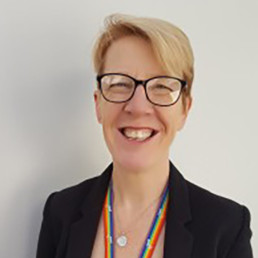
Written by Mel Lane
Mel Lane (she/her) is Head of Education at Pop’n’Olly. She has been a primary school teacher and teacher trainer for nearly 30 years and worked in schools on LGBT+ inclusion policies with thousands of children and school staff. Mel is a co- author of What Does LGBT+ Mean? (Pop’n’Olly, 2021).
“I don’t know what’s special about me… I don’t have anything special about me,” a 5-year-old once told me. I’ll be honest, I was shocked. How could a child not be able to say a single thing that made them feel proud of themselves? – Nothing that singled them out from everyone else.
It was a learning curve for me. I realised that knowing what makes you special isn’t something that children necessarily know about themselves. For whatever reason, some children really need help with identifying what makes them stand out, what particular skills, talents and unique attributes help to define them.
Since then, I’ve really worked hard to ensure that I give children the language they need to talk about themselves – language that they can take with them throughout life to help them feel good about themselves, and to raise their self-esteem.
Here are some things you can do with your class:
- Help children understand that they are made up of a complex mix of things, including how they look, their skills and talents, and their personality. Some of these change and some stay the same.
- Pick a few different children each day. Talk to them in spare moments and find out what they like/dislike and are good at. Give them the language to praise themselves…
“Wow Molly, not everyone can remember to feed their dog every day/draw Pokemon so well/give someone space in the line without asking. That’s part of what makes you unique and special. Don’t forget to tell yourself that and feel proud.”
- Actively teach children how to praise each other and how to accept compliments…
“I noticed that Tariq kept going when the maths was tough today/ was really careful when cutting out the pictures/ balanced that ball in PE really well. Who’d like to compliment Tariq? Did anyone notice anyone else they’d like to praise? Is anyone proud of themselves for something today?”
- Hold a ‘Teach your Talent Day’, where children work in small groups sharing what they can do with each other. I’ve seen children teach each other magic tricks; demonstrate how to do a backbend, explain how to look after a dog and teach how to draw a cartoon dinosaur. Every child has a skill, they just sometimes need help realising it.
Also, don’t forget yourself. You are unique and special too. Every teacher has a different set of skills that help them be great at their job and none of us are the same. Instead of comparing yourself to the person in the next room and convincing yourself they’re better, look for the things you’re good at. Look for those little achievements throughout the day. There is no one way to be a great teacher – you are great just as you are.
If you’d like to do some work on this with your class, our FREE Back to School: Identity Pack gives you lesson plans and resources to help children develop a sense of their own unique identity and feel good about themselves. Download it here.
Building Self-Esteem in the Classroom: A New Premier League Primary Stars Resource

Written by PLPS
Premier League Primary Stars helps children to learn through the power of football in more than 19,000 primary schools across England and Wales. Free Premier League Primary Stars resources can be downloaded from www.plprimarystars.com
Supporting children’s mental health and well-being has never been more important. Schools play a pivotal role in nurturing confident, inclusive, and resilient pupils, and teachers need the right tools to make this happen. That’s why Premier League Primary Stars is excited to introduce their latest free teaching resource: Building Self-Esteem.
Developed with input from PSHE experts and teachers, the Building Self-Esteem pack offers teachers an engaging way to help pupils reflect on their identity, celebrate their strengths, and build positive attitudes that foster personal growth. It’s an ideal tool to use in preparation for Children’s Mental Health Week (3-9 February), but its impact goes far beyond a single week – this resource can be used year-round to promote lasting self-worth and inclusivity in the classroom.
Why Self-Esteem Matters
Self-esteem is a cornerstone of mental health. When pupils feel confident and valued, they’re more likely to participate in class, take on challenges, and treat others with kindness and respect. Low self-esteem, on the other hand, can hinder learning, social interactions, and emotional resilience. This is where the Building Self-Esteem resource shines – it provides activities and lessons designed to empower pupils to see their worth and potential.
What the Resource Offers
The Building Self-Esteem resource takes a creative and interactive approach to teaching self-esteem. Through team-building and cooperative activities, pupils explore topics such as:
- Recognising Personal Strengths: Pupils reflect on their unique qualities and achievements, fostering pride and a sense of accomplishment.
- Embracing Differences: Activities encourage pupils to celebrate diversity and understand the importance of inclusivity.
- Setting Meaningful Goals: Lessons guide pupils in identifying and working toward personal goals, helping them develop a growth mindset.
These activities do more than just build individual confidence; they equip pupils with tools to boost the self-esteem of their peers, creating a ripple effect of positivity within the classroom.
A Resource Backed by Expertise
Aligned with the curriculum, the Building Self-Esteem pack supports PSHE (Key Stage 2) in England and Health and Well-being (Progression Steps 2 and 3) in Wales. Its design reflects the needs of teachers and pupils, ensuring that it fits seamlessly into classroom schedules. Clear guidance and expert insights make it easy for teachers to implement, whether they’re new to PSHE or experienced.
Beyond the Classroom: Lifelong Benefits
The impact of building self-esteem extends far beyond the school gates. When pupils develop confidence and a growth mindset, they’re better equipped to handle life’s challenges and contribute positively to their communities. These skills also lay the foundation for healthy relationships, resilience, and academic success.
How to Get Started
The Building Self-Esteem resource is available for free from Premier League Primary Stars, making it accessible to all schools. Teachers can download the pack and start using it immediately to create a confident, inclusive learning environment.
To explore the resource and find out how it can benefit your school, visit the Premier League Primary Stars website. You’ll also find a range of other free teaching materials designed to support mental health, diversity, and inclusion.
Join Us in Supporting Children’s Mental Health
As we approach Children’s Mental Health Week, there’s no better time to introduce the Building Self-Esteem resource in your classroom. Together, we can equip pupils with the confidence and tools they need to thrive, both inside and outside the classroom. Let’s make self-esteem a priority and empower the next generation to embrace their strengths and celebrate the diversity of others.
For more information and resources, visit the Premier League Primary Stars website or explore initiatives supporting Children’s Mental Health Week.
An Educator’s Introduction to Culturally Responsive Teaching

Written by Eleanor Hecks
Eleanor Hecks is a writer who is passionate about helping businesses create inclusive and diverse spaces. She serves as the Editor in Chief of Designerly Magazine.
Today’s classrooms are more diverse than ever before. Students come from various backgrounds, whether cultural, linguistic or socioeconomic. They bring unique perspectives and experiences.
As the educator, your responsibility now extends beyond delivering the curriculum – it also involves fostering an inclusive environment where all your students feel valued, heard and empowered to achieve their true potential. Culturally responsive teaching is an essential solution.
What Is Culturally Responsive Teaching?
CTR is a research-based pedagogical approach that connects students’ cultural backgrounds with their learning. It focuses on recognizing the assets students can bring into the classroom instead of focusing on perceived shortcomings. CRT helps students engage in deeper learning and develop higher-level academic skills by making these connections.
Theories such as Lev Vygotsky’s Zone of Proximal Development and Jerome Bruner’s Scaffolding underpin CRT’s emphasis on building upon students’ knowledge. These approaches support the importance of connecting new learning to an existing schema, which is central to CRT.
Unlike teacher-centered traditional models, CRT emphasises the student. It integrates diverse cultural aspects into the instruction, tailoring the education process to the student’s needs. Since learning is meaningful and engaging, it promotes a sense of belonging, even among students belonging to minority or marginalized groups.
Why Is Culturally Responsive Teaching Necessary?
Implementing CRT is becoming increasingly necessary in today’s educational landscape. The traditional one-size-fits-all approach no longer addresses the realities of today’s classrooms. Here’s why CRT is growing in demand.
Addresses Diversity in Classrooms
Student ethnicity is growing. A 2022 summary released by the Department of Education showed that the student population comprises 6.5% Asian pupils, 6% mixed or black pupils and 2% belonging to other ethnic groups. These statistics reflect the growing diversity of classrooms in the UK. Standardised teaching methods fail to cater to this diversity, which leaves minority students disengaged and underrepresented.
Strengthens Student Engagement
Students are more likely to connect with and retain information when they see their identities reflected in the curriculum. CRT helps make learning more relevant to their lived experiences.
Promotes Equity and Inclusion
CRT seeks to reduce disparities in education by creating equitable learning environments that recognise and celebrate every student’s identity. Inclusive strategies benefit minority students and open opportunities for the majority to learn as the two groups participate in intercultural conversations and learn about each other’s cultures.
Prepares Students for a Globalised World
There is a direct, positive correlation between cultural and emotional intelligence. CRT equips students with the skills to understand and respect other people’s viewpoints.
Students who grasp that there are different cultures and beliefs grow into adults whose emotional intelligence (EI) makes them compassionate, open-minded and culturally sensitive. This emotional intelligence is responsible for between 27% and 45% of job success as a whole, emphasizing the importance of supporting students’ EI before they enter the workforce.
Develops Critical Thinking
Incorporating multicultural perspectives in classrooms challenges students to think critically about social issues, providing them additional context to understand the wide world around them.
How to Apply Culturally Responsive Teaching in Your Classroom
Adopting culturally responsive teaching doesn’t require completely overhauling your current working methods. Small, intentional changes can create significant impacts. Here are practical steps to integrate CRT into your teaching practices.
- Activate students’ knowledge by connecting with their cultural or personal experiences.
- Tie your lessons to real-world events or contemporary issues so students see their value beyond the classroom.
- Ensure your curriculum and resources reflect diverse authors and cultures.
- Consider your classroom’s physical and visual setup to be more inclusive of minority groups.
- Build strong student-teacher relationships and learn more about your students’ interests, cultural backgrounds and identities.
- Create opportunities for group projects and assignments.
- Attend workshops, read research and collaborate with colleagues to refine your pedagogic practices.
The Impact of Culturally Responsive Teaching
Culturally responsive teaching can transform both students and teachers. For your pupils, it strengthens their sense of identity, boosts academic achievement and allows for deeper engagement with their learning experience. For educators, it provides an opportunity to make a meaningful impact in their students’ lives as they contribute to a more equitable education system. Embracing CRT enables students to prepare for the multicultural world beyond their classrooms.

